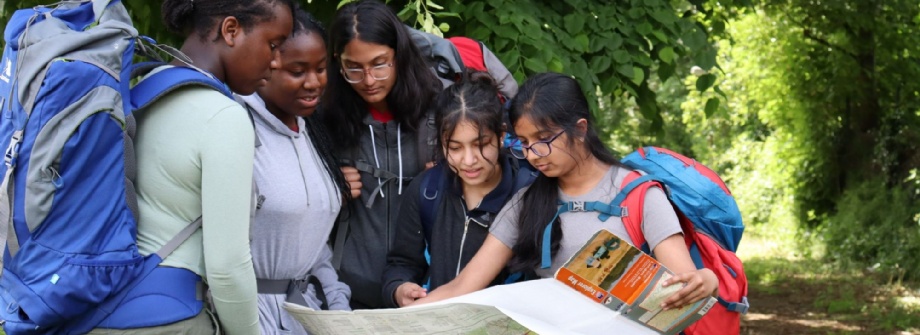Staff Blog // Careers without Tears

Gatsby Benchmark 4, careers in the curriculum, is the headache of many a careers lead.
This blog is based on a recent session delivered at the Girls' Learning Trust Staff Conference 2023 by Jamie Parkinson (Assistant Headteacher at Wallington High School for Girls).
All careers education is clearly the responsibility of all school staff, but this is the benchmark where is rings most true. What I hoped to do in my session was show staff ways in which they can get careers education into their everyday teaching as well as reassure them, that they are already probably doing more of this than they already thought. So here is a short summary of Careers without Tears (sorry for the name, I was forced into it) which I hope might generate some discussion.
As the careers lead at WHSG, getting this onto the agenda has been difficult. I inherited this as a school priority before the pandemic, and unfortunately it spent this time being ignored as all school staff, rightly, tried overnight to work out how to teach, provide pastoral support to our students and in many cases their own kids! Last year, it was again overlooked as we fought back to a stage of normality and this year it is back on! This is timely, not only is it incredibly important, but it is certainly something that is on the agenda recent local inspections.
So why is it necessary? Careers education is lessons can give context. This gives students a sense of belonging and gives them personal effectiveness, careers readiness and just more confidence to make more informed decisions about the futures. Research has shown that schools that do this well also get better outcomes for their students.
Gatsby benchmark really comes in three forms: during PSHCE, enrichment days and during lessons. As a school we have pushed hard over the last couple of years to beef up of PSHCE offer and each year group now has a group of careers related lessons. We have some enrichment days which are careers focussed and this is increasing with a Dragon’s Den event planned for the Spring Enrichment as an example. However, it is lessons and academic curricula that I am now focussing on.
Having had a discussion with SLG (Senior Leadership Group) we talked about some easy wins but also some of their concerns. Having had some informal conversations, I felt that there probably more going on the people knew about it was agreed that they would go away and survey their departments to find out if this was true. The English faculty were particularly worried, but their surveying has dug up lots of good practice and lots of areas were GB4 can be embedded. Once I have received all the feedback my intention is to try and collate it centrally and see where gaps may exist. Eutopia is at least one experience per subject, per year. I do not want this to happen if it leads to undue workload. At present there are pushes to get EDI, computing, careers and many other things into curricula, and we need to be careful we are not overloading teachers time or asking too much of them in terms of being experts.
So here are some easy wins.
Find your staff who have had “proper” jobs. Get them to talk to students or produce resources. Support staff could be an excellent role model here. Look at external speakers, possibly alumni. With the invention of video calling this can be easy to set up. Focus on skills. As a science teacher, do we make enough of the practical skills they are learning and how this could relate to other careers, not just in science? Use resources that are already out there, the CEC is great, and we subscribe to UNIFROG. Many companies also produce resources and would be happy to assist. And lastly, and most importantly, look at topics already in your curriculums. I dabbled in a bit of Business Studies this year and there is a whole topic on starting a business, job done!
However, with all these things, there are some traps you need to avoid. Do not make this tokenistic. This will make it boring and will disengage students, and we want the opposite effect. Ensure staff have the correct knowledge. We already have enough false information being spread by family and friends so ensure your teachers are not going to tell them they need biology, chemistry, maths to be a doctor or a Law degree to be a lawyer. The other danger is pigeonholing your subject. A geography colleague was worried that if they turned their weather lesson into 'if you get a geography degree you can become a weatherperson or a hydrologist', then this may turn a lot of students off and he is right.
For me the answer to this is to focus on the skills of the task in hand. What else do you need to be a weather person? If you were good at public speaking / data analysis, what else could you? I actually think this could be very powerful for subjects with smaller numbers. This is a great way to look your students in the eye and say if you get a History A Level you could be a lawyer, a doctor, a police officer and the list goes on!
One of my attendees said something that has stuck with me:
“I think this is the most important thing we teach students. Giving them the knowledge and skills about what to do next and more importantly the knowledge about the skills that they have, is the most important thing that we can send our students away with."
Go away, be brave and empower our students to become the best they can be.
Jamie Parksinon
Assistant Headteacher (Wallington High School for Girls)
